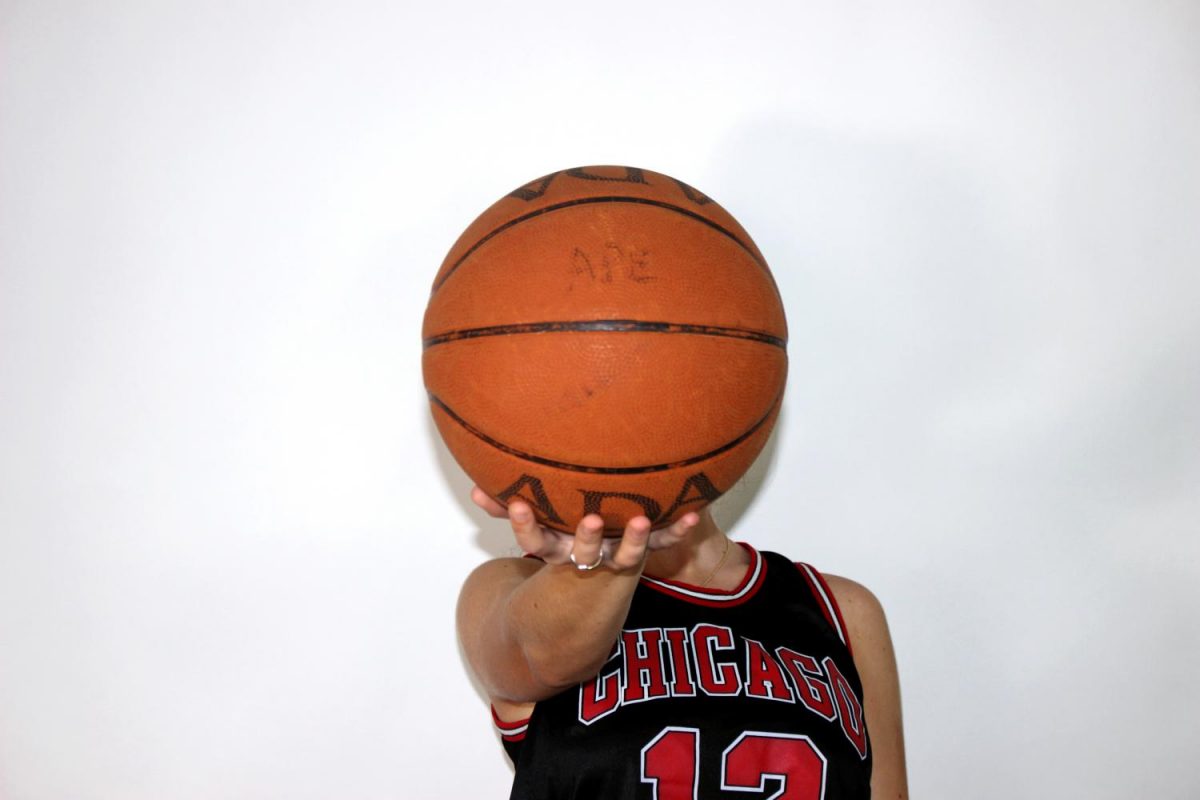ONLINE EXCLUSIVE: Getting Mentally Tough In The Game
A guide to inner excellence.
Professional baseball catcher, manager and coach Yogi Berra once said, “90 percent of the game is half mental.” Everyone can see that the mathematics behind the topic does not correspond with the logic of the statement. However, Berra’s reasoning couldn’t make any more sense.
In sports, an athlete’s biggest enemy is not a parent, a coach, or the person fighting neck-in-neck for that starting position. The only person an athlete is competing against is that voice inside their head.
I can’t do this.
I’m too tired.
I’m not good enough.
It’s not possible.
A voice that can shut off the mind of an athlete in a matter of seconds. A voice that can break a heart full of love for the game. A voice that can lower the unreachable potential that resides within. A voice that can fill a mind with hatred. A voice that can fill eyes with waterfalls. A voice that can kill an athlete.
A student that has experienced this first hand is senior varsity soccer goalkeeper Noah Boehm.
“I get down on myself after letting in a goal,” Boehm said. “I just keep repeating that I suck in my head.”
When athletes are young, sports are played for one reason: love. There was no fighting to be first string, yelling at the officials about bad calls, or anger from the hearts and minds of young athletes. It didn’t matter what the score was, what calls the officials made, or what they played like. It didn’t matter because when an athlete is younger, all that is going through their mind is the task at hand: playing the sport that put the beat in their heart.
As athletes grow up, they realize that playing sports have become a part of them. The level of competition increases as well as the thoughts that flow through a high school athlete’s mind. Higher level sports demand a lot out of their athletes both physically and emotionally which, in turn, forces one to become strong mentally.
“The mental aspect of the game is by far more important than the physical side of sports,” Boehm said. “If your teammates see defeat on your face, it is going to bring them down with you.”
All impeccable athletes deal with inner battles that impact their mental stability. Being mentally tough shows the gratification athletes have for the game. However, all of the successful athletes have figured out the method-of-madness behind mental toughness. Mental toughness is a measure of individual resilience and confidence that may predict success in a sport; positive attributes that help an athlete cope with difficult situations. With all of the pressures put on an athlete during the game, mental toughness is what makes that 90 percent expressed by Berra so vital to every player.
Another student that has had to deal with the hardships of inner struggle is back-up goalkeeper Ian Gugel.
“As a goalkeeper, people don’t pay attention to the save,” Gugel said. “Oftentimes, people only remember the goal that was let in, which adds that much more pressure on the goalie.”
Nine percent of the game is goal setting. Goals are what keep an athlete striving towards excellence with every drop of blood, sweat and tears that come along the way of achieving them. No goal is unreachable and nothing in this world is impossible.
Nine percent of the game is motivation. Motivation is at the roots of all successful athletes. Without motivation, there is no work ethic that pushes athletes to be the best that they can be and more.
Nine percent of the game is visualization. Before a practice or game, it is important to visualize the game mentally. Visualizing the game and possible situations that may arise help an athlete to be better prepared and ultimately more successful in the long run.
Nine percent of the game is relaxation. It takes a lot of strength to calm one’s mind in the middle of playing. However, staying relaxed is important to keep the mind focused and alert during a game.
Nine percent of the game is concentration. Every athlete has experienced that boring game where there hasn’t been one shot on goal or even one ball to the outfield. Those are the games that test an athlete’s mental toughness the most. It is crucial to stay mentally focussed in a game such as that because you never know when you will be called into action.
Nine percent of the game is positivity. Positivity is a cure to the voice in an athlete’s head and a game changer in many ways. Positivity not only picks an athlete up, but also has the power to influence teammates as well.
Nine percent of the game is attitude. Attitude is a direct reflection of character as a person and athlete. Character ultimately determines who an athlete is and what they will become.
“I’ve never gotten down on myself for not starting a game,” Gugel said. “I know that Noah is the better keeper so I am going to put in the work to hopefully get my chance.”
Nine percent of the game is self-talk. The more an athlete practices talking to themselves, the more likely the voice in their head is to go away. In times when athletes feel like they can’t go any further, it’s self-talk that can help them push that extra mile.
Nine percent of the game is to just play. Sometimes, athletes get so caught up on the right thing to do that they forget that there sometimes is no right thing to do. Sports are a matter of just playing and letting instincts take over.
“Letting in a goal is one of the worst feelings,” Gugel said. “It would always get in my head which would make me perform worse.”
The last nine percent of the game is emotional strength. Hating to lose more than liking to win is something that puts stress on an athlete’s emotional strength. Nothing can compare to that of letting in a goal, missing a free throw, striking out and ultimately losing a game. Crying is not a weakness and does not mean that an athlete is not emotionally tough. It is something that helps an athlete cope with the hardships of a let-down. Crying shows that the passion and love for the game still beats in the hearts of athletes at the high school, collegiate and professional level of sports. Emotional strength is something that can be influenced, but it cannot be taught. Mental toughness is found by exercising the mind and listening to the heart.


